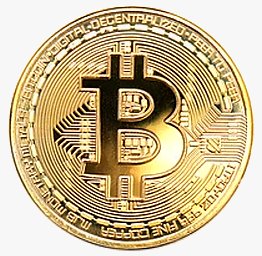Accredited InvestorsAltcoinAnatoli UnitskyAnti-Money Laundering (AML) In CryptoAPIArbitrageArtCoin TokenArticle DirectoryASICAuction Terminology GlossaryBasics of Stock Market InvestingBear MarketBest Crypto Payment Provider In the WorldBitcoinBlockchainBlockchain ConfirmationBlockchain Consensus MechanismBlockchain ForkBlockchain GlossaryBored Ape Yacht ClubBuild a Business That OutperformsBull MarketBuying SkyWay SharesByzantine Fault Tolerance (BFT) ExplainedCasascius CoinCentral Bank Digital Currency (CBDC)Centralized Crypto ExchangeCoinCoinsetCold WalletCollateralCommodity Futures Trading Commission (CFTC)Cross-Chain TechnologyCRUCrypto ExchangeCrypto GlossaryCrypto JokesCrypto Terms to KnowCrypto TickerCryptocurrencyCryptographyCryptojackingCryptounit BlockchainCryptounit GlossaryCryptounit ProgramdApp (Decentralized Application)Dead CoinDecentralized Exchange (DEX)Decentralized Finance (DeFi)Difference Between Bitcoin and EthereumDifferent Ways of Investing MoneyDigital CurrencyDistributed LedgerDo Your Own Research (DYOR)Dollar Cost Averaging (DCA)Dow Jones Industrial Average (DJIA)EncryptionERC-20ERC-721EthereumEvoScentFear Of Missing Out (FOMO)Fear, Uncertainty and Doubt (FUD)Fiat MoneyFNT Fintech CompanyGenesis BlockGlobal Unit PayGlossary of Banking TermsGlossary of Business TermsGlossary of Financial TermsHalvingHODLHot WalletHow Do I Start InvestingHow Rich is Satoshi Nakamoto?How to Create a BlockchainHow to Find Private InvestorsHow to Get Into FintechHow to Program Smart ContractsI Am Thrilled to Be a Part of This Global ProjectInitial Coin Offering (ICO)Initial Public Offering (IPO)Initial Token Offering (ITO)Innovation Basalt TechnologyInnovative Transportation TechnologiesInternational Bank Account Number (IBAN)Investing in Gold Mining StocksInvesting in Gold MiningJagerJoy of Missing Out (JOMO)Know Your Customer (KYC)LedgerLiquidity in CryptocurrencyMaker and Taker Fees in Crypto TradingMarket Capitalization (Market Cap)Meme CoinMetal Credit CardMetaMaskMillenials Now Have Access to Generational WealthMy Best Investment EverNew Digital EvolutionNFT GlossaryOff-Chain TransactionsOn-Chain TransactionsOpen Edition NFTPeer-to-Peer (P2P)Personal Loan GlossaryProbably the Best STO on the MarketProof of Stake (PoS)Real Estate Glossary of TermsReal Estate Investing GlossaryRebase TokenSecurities and Exchange Commission (SEC)Security Token ExchangesSecurity Token Offering (STO)Soulbound Decentralized Identities for Security TokensSoulbound ID Launch by Stobox Proves a SuccessSoulbound TokensStoboxStock Market GlossaryTestimonialsTether Platform and Token (USDT)UnitEx ExchangeUnitsky String TechnologiesUNTBUSDUValidatorWe Started Investing When We Were 25What are Blue Chip NFT?What are Blue Chip Stocks?What are Crypto Assets?What are Crypto Smart Contracts?What are CryptoPunks NFT?What are Digital Assets?What are Digital Collectibles?What are Gas Fees?What are Gas Wars?What are Hashmasks?What are Non Fungible Tokens?What are Non-Sufficient Funds (NSF)?What are Soulbound Tokens (SBT)?What are Stablecoins in Crypto?What are Transactions Per Second (TPS)?What are Utility NFTs?What are Utility Tokens?What Does Burning Crypto Mean?What Does Diamond Hands Mean?What Does Paper Hands Mean?What Does To The Moon Mean?What Does WAGMI Mean?What Happened to Satoshi Nakamoto?What is a 51% Attack?What is a Baby Boomer?What is a Backlink?What is a Banner?What is a Barcode?What is a Bid-Ask Spread in Crypto?What is a Block in Blockchain?What is a Block Reward?What is a Blockchain Address?What is a Blockchain Node?What is a Blockchain Oracle?What is a Blog?What is a Bond?What is a Bot?What is a Broker?What is a Business Accelerator?What is a Cash Cow?What is a Commercial Bank?What is a Commodity?What is a Con?What is a Credit?What is a Credit Limit?What is a Credit Rating?What is a Crypto Airdrop?What is a Crypto Bridge?What is a Crypto Scam?What is a Crypto Token?What is a Crypto Wallet?What is a Crypto Whale?What is a Crypto Winter?What is a Cryptocurrency Public Ledger?What is a Cryptocurrency Roadmap?What is a DAO?What is a Dark Pool?What is a Day Trader?What is a Dead Cat Bounce?What is a Default?What is a Derivative?What is a Digital Credit Card?What is a Fiscal Quarter?What is a Fungible Token?What is a Governance Token?What is a Grace Period?What is a Hard Fork?What is a Hot Wallet?What is a Hybrid Blockchain?What is a Hybrid PoW/PoS?What is a Joint Account?What is a Market Cap?What is a Merkle Tree in Blockchain?What is a Mining Farm?What is a Nonce? What is a PFP NFT?What is a POS System?What is a Prepaid Card?What is a Private Blockchain?What is a Private Key?What is a Public Blockchain?What is a Public Key?What is a Reserve Currency?What is a Ring Signature?What is a Routing Number?What is a Rug Pull in Crypto?What is a Safe Deposit Box?What is a Satoshi?What is a Security Token?What is a Seed Phrase?What is a Shitcoin?What is a Sidechain?What is a Soft Fork?What is a Spot Market?What is a State Bank?What is a SWIFT Code?What is a Tax Identification Number (TIN)?What is a Time Deposit?What is a Transaction Account?What is a Variable Interest Rate?What is a Virtual Assistant (VA)?What is a Virtual Card?What is a Virtual Currency?What is a Visa Card?What is a Whitelist in Crypto?What is a Whitepaper?What is Accounts Payable (AP)?What is AMA in Crypto?What is Amortization?What is an Accrual?What is an ACH Transfer?What is an Actuary?What is an Addendum?What is an Algorithm?What is an Angel Investor?What is an Annuity?What is an Asset?What is an ATM?What is an Atomic Swap?What is an Audit?What is an Avatar?What is an EIN?What is an Embargo?What is an Entrepreneur?What is an IDO (Initial Dex Offering)?What is an Interest Rate?What is an Internet cookie?What is an Investment Bank?What is an NFT Drop?What is an NFT Floor Price?What is an Ommer Block?What is an Orphan Block?What is an Outstanding Check?What is an Overdraft?What is Artificial Intelligence (AI)?What is B2B (Business-to-Business)?What is B2G (Business-to-Government)?What is Bartering?What is Bitcoin Dominance?What is Bitcoin Pizza Day?What is Blockchain Immutability?What is Blockchain Used For?What is BRICS?What is Business-to-Consumer (B2C)?What is C2C (Customer to Customer)?What is Capitalism?What is Catfishing?What is CFD Trading?What is Check Kiting?What is Cloud Mining?What is Communism?What is Content Marketing?What is Decentralization in Blockchain?What is DeFi in Crypto?What is Delisting?What is Depreciation?What is Digital Marketing?What is Diversification?What is Double Spending?What is Dumb Money?What is Dumping?What is Earnings Per Share (EPS)?What is Economics?What is Email Marketing?What is Equity?What is Etherscan?What is Fintech?What is Foreign currency?What is Forex?What is Fundamental Analysis (FA)?What is GameFi?What is Generative Art NFT?What is Gwei?What is Hard Currency?What is Hash Rate?What is Hashing in Blockchain?What is Inflation?What is Initial Game Offering (IGO)?What is Interest?What is Interest Income?What is Mainnet?What is Mastercard?What is Metaverse in Crypto?What is Mining in Cryptocurrency?What is Minting NFT?What is Mobile Banking?What is Money Laundering?What is NFT Alpha?What is NFT Metadata?What is NFT Rarity?What is NGMI Meaning?What is Nominal Interest Rate?What is Online Banking?What is Open-End Credit?What is OpenSea NFT Marketplace?What is Personal Identification Number (PIN)?What is Play-to-Earn?What is Polygon?What is Proof of Authority (PoA)?What is Proof of Work (PoW)?What is Public Key Cryptography?What is Pump and Dump?What is Quantum Computing?What is Refinancing?What is Retail Banking?What is Ripple?What is Sharding?What is Slippage in Crypto?What is Smart Money?What is Solvency?What is Soulbound ID?What is SSL?What is Staking in Cryptocurrency?What is Technical Analysis (TA)?What is Testnet?What is the Ask Price?What is the Better Business Bureau (BBB)?What is the Bid Price?What is the Dark Web?What is the InterPlanetary File System (IPFS)?What is the Gold Standard?What is the Lightning Network?What is the Prime Rate?What is the Sandbox?What is the Secondary Market?What is the World Bank?What is Tier 1 Capital?What is Tokenomics?What is TRC-20?What is Universal Banking?What is Unspent Transaction Output (UTXO)?What is Usury?What is Volatility in Crypto?What is Wash Trading?What is Web3?What is Whisper?What is XRP?What is Zero-Knowledge Proof (ZKP)?Who is Beeple?Who is Satoshi Nakamoto?Who is Vitalik Buterin?Why Tokenization is a Safe HavenWhy You Should Try Your Hand at Trading
Digital Currency
- Home
- Cryptounit Glossary
- Digital Currency
Digital currency is form of currency that is exclusively available in digital or electronic form. It is also known as electronic or digital money, electronic currency, or cybercash.

Digital currencies, unlike cash or gold, are not a physical thing. However, they serve the same purpose as "normal," non-digital, tangible currencies. Like real cash, digital currency has value and may be used to purchase and sell goods and services. It can also be used as a unit of account.
Digital currencies also allow for quick transactions that may be carried out across nations. For example, a person in the United States can send digital currency transfers to a counterparty in UK as long as they are both linked to the same network.
Types of Digital Currencies
- Cryptocurrencies - cryptocurrencies are digital currencies, like as Bitcoin or Ethereum, that employ encryption and largely function on a decentralized blockchain.
- Virtual Currencies - are digital currencies utilized by creators of virtual online communities. Virtual currencies are used to purchase in-game products and services.
- Central bank digital currencies (CBDCs) - are digital currencies that are backed and controlled by a government, or central bank, such as the Federal Reserve, and are legal payment in the nation of issuance.
- Stablecoins - stablecoins are several cryptocurrencies, such as USDU, which are usually backed 1:1 by a fiat currency, such as the US dollar, but are not backed by a central bank or government.
Payments with digital currencies are typically instantaneous and low-cost since they are conducted directly between the transacting parties without the need for any middlemen. This outperforms typical payment systems that rely on banks or clearinghouses. Electronic transactions based on digital currencies also require record keeping and transparency in transactions.
Storage and Safety
While physical wallets are not required, digital currencies have their own set of storage and processing needs. An Internet connection, for example, is required, as are cellphones. To hold digital currency, online wallets with strong security are also required.
Because of their digital origins, digital currencies are vulnerable to hacking. Hackers can take digital currency from online wallets or modify the protocol that makes digital currencies useless. As several incidents of cryptocurrency hacking have demonstrated, safeguarding digital networks and currencies is a work in progress.
Why do Digital currencies Have Many Advantages?
- Because there is no central authority in charge of regulating digital currencies or determining eligibility, anybody, especially the unbanked, can use them.
- Because physical storage in safes and vaults at your local bank are no longer required.
- Accounting and record keeping are really simple. Everything already takes place in a digital environment, with ledgers keeping track of records in a public manner.
- Because digital money transfers between two people do not require an intermediary, such as a bank or credit card, transaction times are short.
- Because transaction expenses to move digital currency to another person or pay for online items are cheap or non-existent. There are no intermediaries, no bank fees, no transfer costs, and no credit card fees.
- Because digital currencies lack a solid, tangible form, producing the actual cash is unnecessary.
Many criteria for physical currencies, such as the establishment of actual production facilities, do not apply to digital currencies. Such currencies are likewise impervious to physical defects or soiling that can occur with real cash.
Disadvantages of the Digital Currency
- Can be hacked.
- They might be challenging to store and utilize.
- Prices might fluctuate.
Many companies have attempted to lessen volatility by creating stablecoins, the value of which is tied to the price of fiat money. This is commonly done by depositing an equivalent amount of fiat currency, which can then be used to redeem the tokens. However, stablecoin issuers like Tether have utilized these deposits on more speculative ventures, increasing worries about their vulnerability to a market meltdown.
In conclusion
Digital currencies provide several advantages that practically anybody may take advantage of. However, because of their digital and technical character, they have shortcomings that must be solved in order to completely benefit from all of the innovation they bring.
Related Articles

Bitcoin
The digital currency known as Bitcoin is operated through a distributed computer network. However, in a larger sense, the term "Bitcoin" is frequently used to refer to a number of other concepts.

Ethereum
Ethereum is a decentralized global software platform based on blockchain technology. It is internationally known for its own cryptocurrency, ether (ETH).

Encryption
Contrary to common assumption, most cryptocurrencies and their blockchain networks do not rely on encryption mechanisms. Instead, they rely on hash functions and digital signatures. For example, the...

Cryptocurrency
Cryptocurrency, abbreviated as crypto, refers to any digital form of money that employs cryptography to safeguard transactions such as buying, selling, transferring, and staking.

USDU
The stablecoin USDU operates on the Cryptounit blockchain. The advantage of the Cryptounit Blockchain is the high speed of transactions and zero commission for the transfer of tokens. In addition to the stablecoin, a...
- Home
- Cryptounit Glossary
- Digital Currency